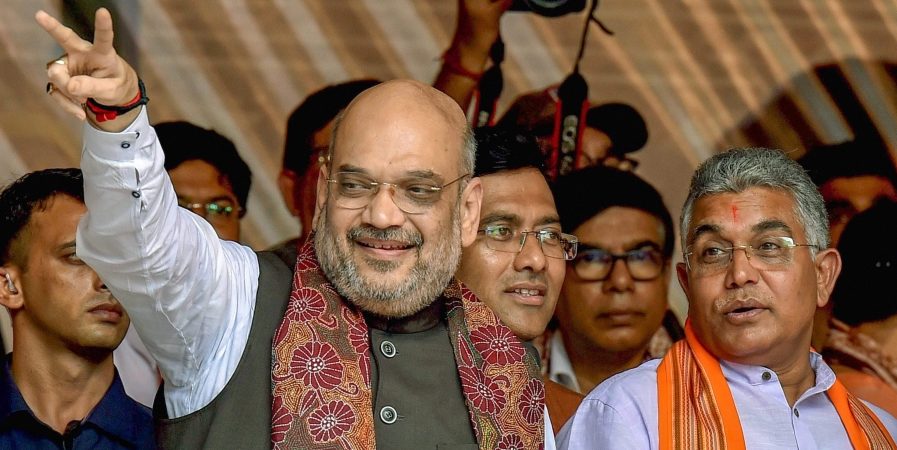In my previous article I had discussed the shortcomings and political blunders of the Bharatiya Janata Party (BJP) in West Bengal post-2014. In this article I will attempt to further elaborate on it.
To understand this in perspective one has to understand the nature of politics and the political culture prevalent in West Bengal. This is especially important for a party like the BJP which is still in its infancy in the state and is heavily dependent on its leaders in Delhi.
Politics exists in the everyday life of the common Bengali. During the 34 years of a regimented Communist rule, every walk of life has been directly or indirectly politicised in the state. Though a small beginning has been made to change the status quo, but there is still a long way to be at par with some other parts of the country where there exists democratic spaces independent of politics.
Therefore, the very strategy of pitching in non-political organisations or entities for surrogate political narrative building is a futile exercise in Bengal. As the saying goes, when in Rome be like the Romans. So, the BJP needs to adapt to the Bengali way if it is serious about gaining political ground in Bengal.
Next comes the political ideology of a political party. This may have a very limited or a very superficial bearing outside West Bengal but here, “ideology” still counts for the common Bengali.
How much the political party’s activities adhere to its ideology may be debatable but its existence and acceptance amongst activists and supporters cannot be ignored. This is almost like the importance of caste in politics in some other parts of the country. There was a time when even marriages were strictly forbidden amongst opponent political party followers. Though this has significantly changed in the past decade, it still prevails among some people. I say this to explain how seriously political ideologies are taken in Bengal.
The Congress was the primary Opposition for the better part of the Left rule but they were unable to dislodge the Left from power. The Left rule ended only when a counter political narrative designed for the state swept the people of Bengal in its thrall – and that was the Trinamool Congress. Despite opposition from industrialists and chambers of commerce, the Trinamool Congress government’s “no land acquisition” policy still remains firm.
——————————————————–
———————————————————-
Politicians changing parties outside their ideological fraternity continues to be big taboo in West Bengal. Generally, a Left activist would have switched to another Left party. Similarly Trinamool Congress or Congress activists would switch to non-Left parties. The BJP too needed to cultivate its own identity for long term acceptance, but the party chose to take a shortcut and admit anyone and everyone without looking at their ideological background. Naturally, this has found limited acceptance with the ideologically inclined common Bengali.
The BJP in Bengal has so far failed to get their demands met with from the Delhi leadership. There hasn’t been a significant project in the state in the name of Dr. Shyama Prasad Mookerjee in the post-2014 phase. Comparing with the grandeur of the “Deendayal Centenary Celebrations” or the 150th birth anniversary of Sister Nivedita or the sheer scale of the momentum ignited for the “Statue of Unity”, Dr Mookerjee has been more or less left in the lurch. Even while several Central government and BJP ruled state government projects and schemes have been named after the likes of Deendayal Upadhayay, JP Narayan and Atal Behari Vajpayee, Dr Shyama Prasad Mookerjee hardly found his rightful place.
There have been repeated demands for setting up of a Central institute/university in Kolkata after Dr. Shyama Prasad Mookerjee, but it has remained unrealised.
Without coming clear on these fundamental ideological and policy issues, can the BJP really hope to find a place in the hearts and minds of the people of Bengal?
(Concluded)
[The views expressed belong solely to the author, and may not reflect the opinions of the editorial team]


Comments are closed.